- Bryan College in Springfield, MO, offers the training that can really make the difference in your professional life. Students from the Springfield area can gain valuable professional skills that can lead to better career opportunities. Springfield, Missouri, college life is where it�s at! Bryan College is one of many great choices for education in a town that�s definitely college-oriented. But not every school in Springfield, Missouri, offers the quality career training found at Bryan College. We�re a technical college that offers a student-centered education in a student-centered city. Bryan College students definitely stand out to area employers among the nearly 43,000 university and technical college students of Springfield.
School Highlights
Bryan University serves 254 students (100% of students are full-time).
The college's student:teacher ratio of 6:1 is lower than the state community college average of 16:1.
Minority enrollment is 44% of the student body (majority Black), which is more than the state average of 41%.
Quick Stats (2025)
- Enrollment: 254 students
- Private-state tuition: $15,321
- Acceptance Rate: 91%
- Student:teacher ratio: 6:1
- Minority enrollment: 44%
- Source: Integrated Postsecondary Education Data System (IPEDS)
School Overview
The teacher population of 44 teachers has stayed relatively flat over five years.
Bryan University
(MO) Community College Avg.
Carnegie Classification
Baccalaureate/Associate's Colleges: Mixed Baccalaureate/Associate's
Baccalaureate Colleges: Diverse Fields
Institution Level
Four or more years
At least 2 but less than 4 years
Institution Control
Private for-profit
Public
Total Faculty
44 staff
139 staff
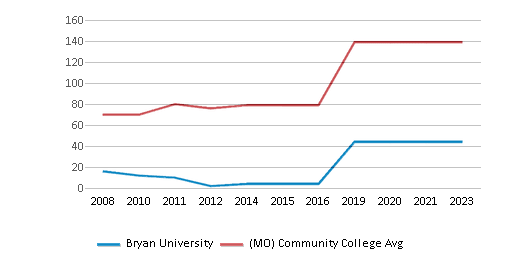
Student Body
The student population of Bryan University has declined by 7% over five years.
The student:teacher ratio of 6:1 has stayed the same over five years.
The Bryan University diversity score of 0.61 is equal to the state average of 0.61. The school's diversity has stayed relatively flat over five years.
Total Enrollment
254 students
1,159 students
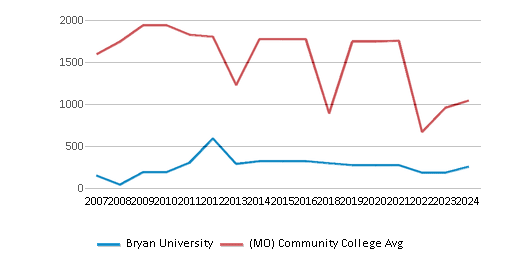
Student : Teacher Ratio
6:1
16:1
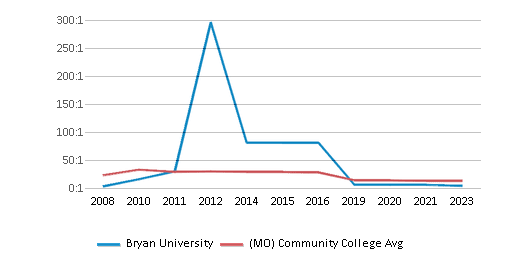
# Full-Time Students
254 students
718 students
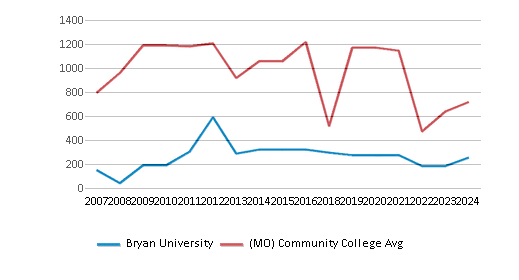
# Part-Time Students
n/a
1,407 students
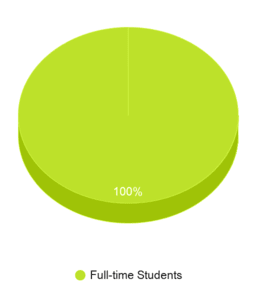
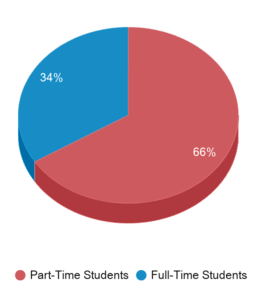
# Enrollment Undergraduate
246 students
246 students
# Full-Time Undergraduate Students
246 students
834 students
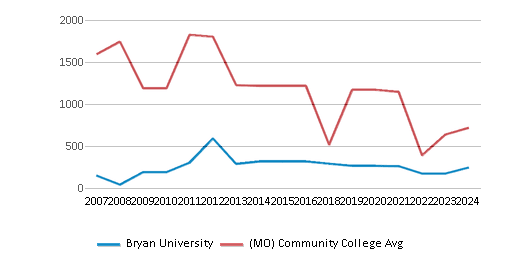
# Full-Time Graduate Students
8 students
11 students
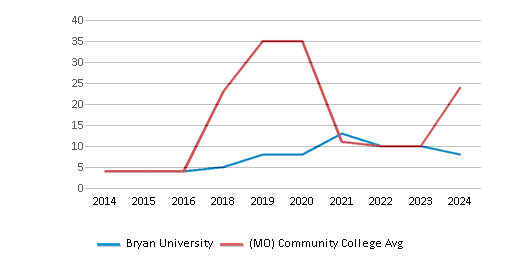
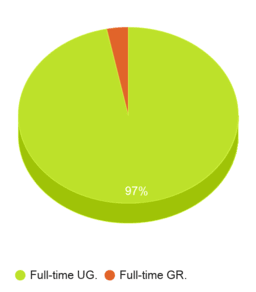
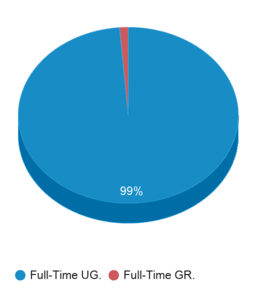
# Part-Time Undergraduate Students
n/a
684 students
# Part-Time Graduate Students
n/a
9 students
Total Dormitory Capacity
n/a
200 students
% American Indian/Alaskan
1%
n/a
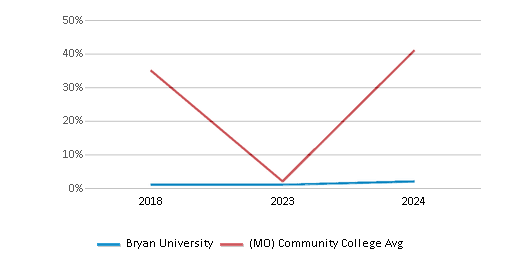
% Asian
1%
2%
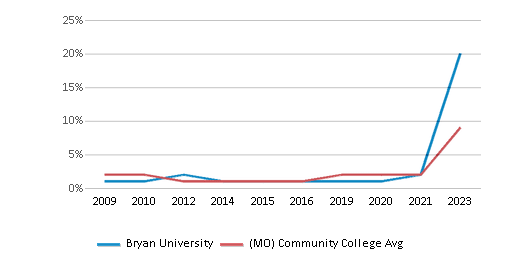
% Hispanic
9%
6%
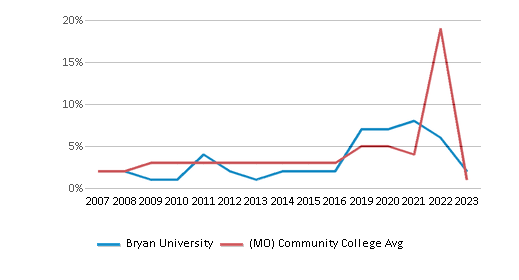
% Black
26%
10%
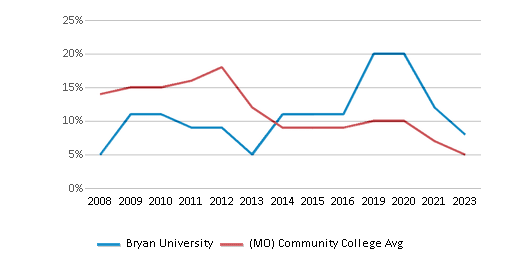
% White
56%
59%
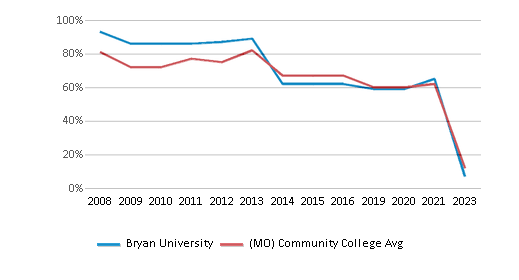
% Hawaiian
1%
1%
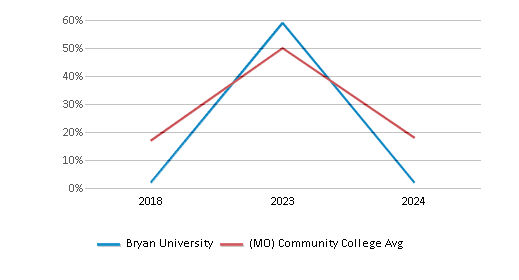
% Two or more races
4%
4%
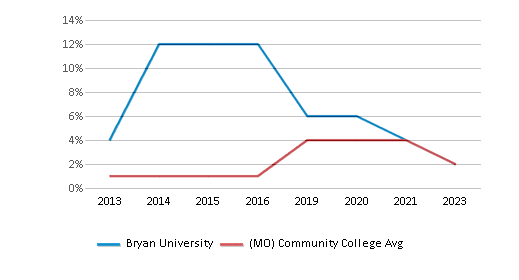
% Non Resident races
n/a
1%
% Unknown races
2%
17%
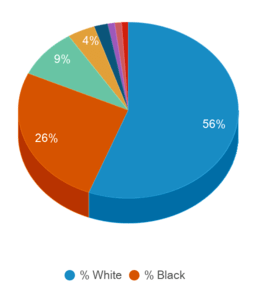
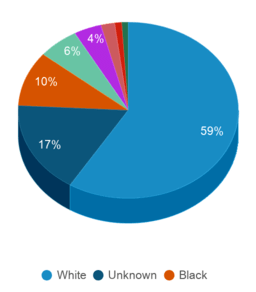
Diversity Score
0.61
0.61
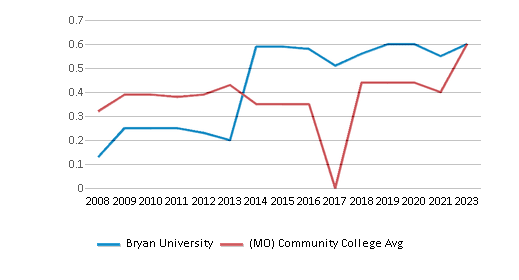
College Completion Rate (Students who graduate in less than 4 years)
45%
31%
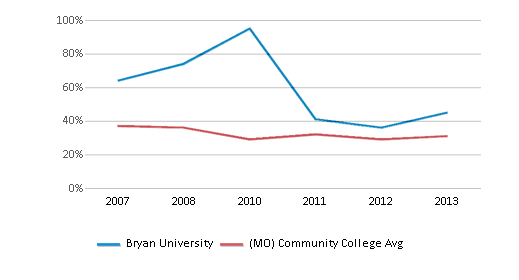
College Completion Rate (Students who graduate in 4 years or more than 4 years)
0.6916%
0.6154%
Average Graduate Earnings (10 Years)
$27,900
$30,900
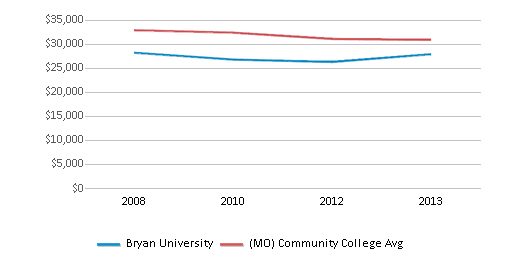
Tuition and Acceptance Rate
The private state tuition of $15,321 is less than the state average of $16,263. The private state tuition has stayed relatively flat over four years.
Private State Tuition Fees
$15,321
$16,263
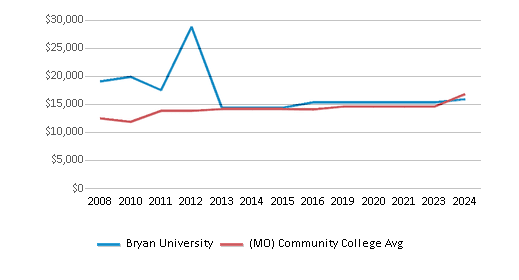
% Students Receiving Some Financial Aid
91%
91%
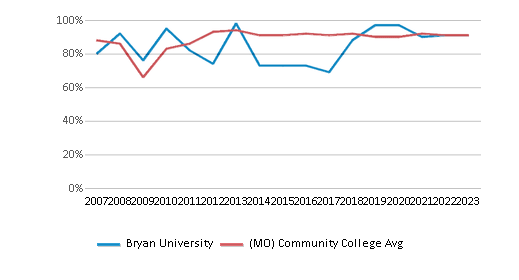
Median Debt for Graduates
$22,402
$10,500
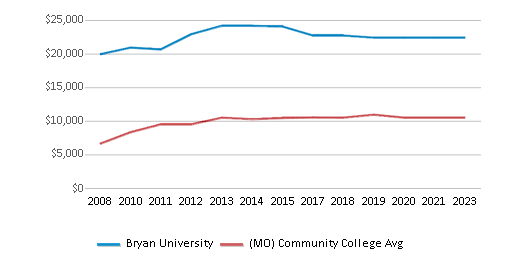
Median Debt for Dropouts
$9,500
$5,500
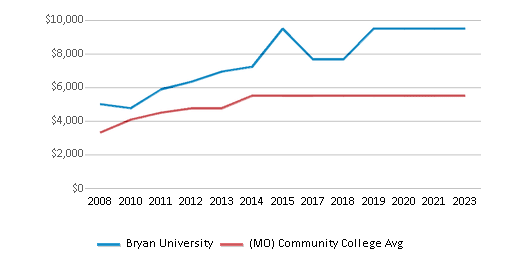
Acceptance Rate
91%
66%
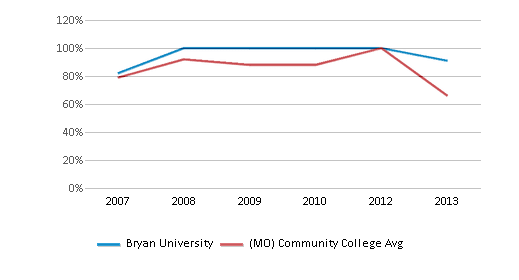
Source: 2024 (or latest year available) Integrated Postsecondary Education Data System (IPEDS)
Frequently Asked Questions
How much does Bryan University cost?
Bryan University's private state tuition is approximately $15,321.
What schools are Bryan University often compared to?
Bryan Universityis often viewed alongside schools like Cox College by visitors of our site.
What is the acceptance rate of Bryan University?
The acceptance rate of Bryan University is 91%, which is higher than the state average of 66%.
Recent Articles

Obtaining Your Bachelor's Degree at a Community College
Explore the evolving landscape of community colleges offering bachelor's degrees, addressing affordability, accessibility, and workforce needs.

A to Z of Community College Certificates and Courses
From business and healthcare to technology and skilled trades, the article showcases the breadth of options available to students seeking to enhance their knowledge, develop new skills, or pursue career advancement.

What is a Community College?
This comprehensive guide explains what a community college is, its history, and its role in higher education. It covers the types of programs offered, differences from four-year colleges, benefits of attending, and important considerations for prospective students, providing valuable insights for those exploring educational options.





